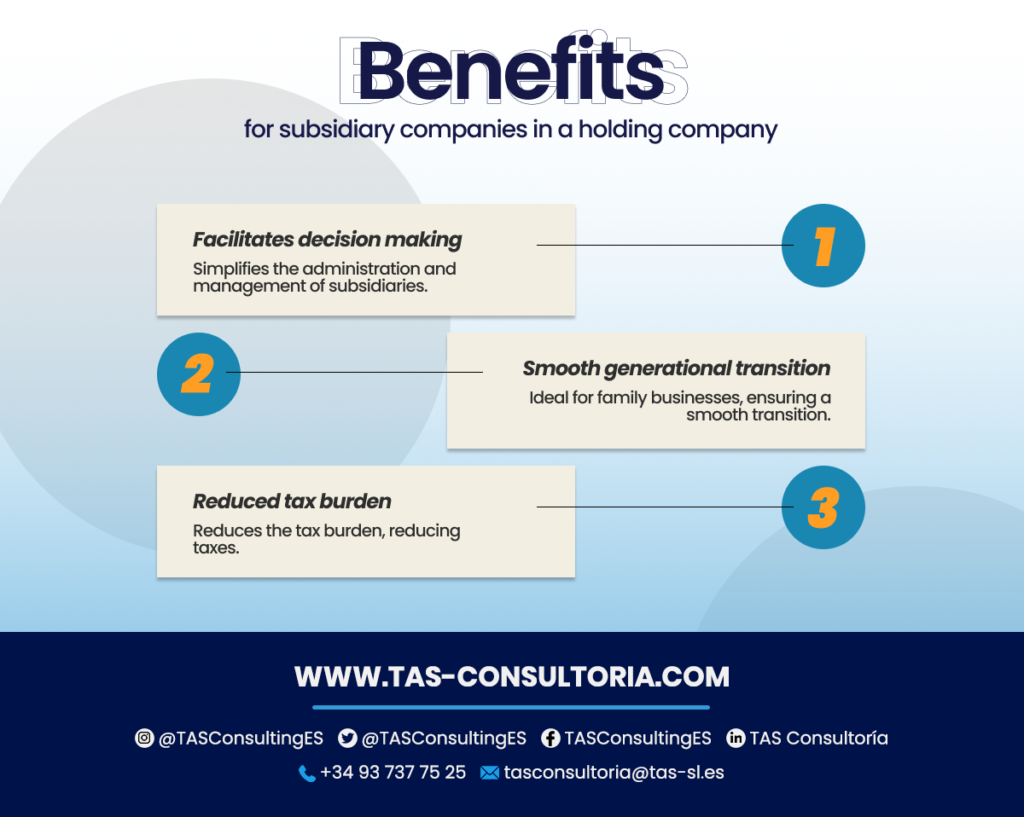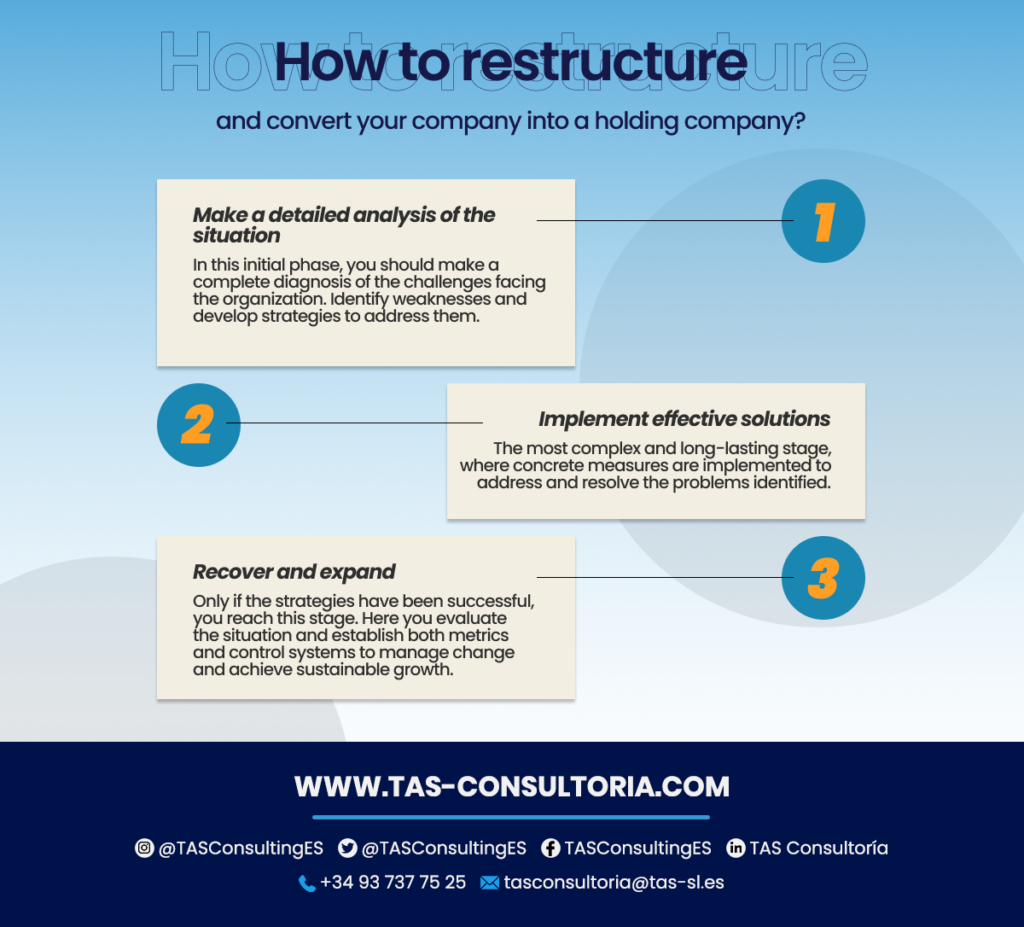
Holding companies are a business structure that often raises curiosity and questions. Why do so many professionals consider converting their business into a holding company? We share with you its advantages and importance in today’s business environment. If you want to understand why more and more entrepreneurs are opting for this form of organization, read on!
What is a holding company?
First, we must recognize the possibility of misunderstandings due to the use of Anglicisms in business. The term “holding” is one of these and can be confusing. It comes from the English verb “to hold”, which, among other things, means “to possess”.
In general terms, holding companies can be described as parent companies that own other subsidiaries or affiliates. These subsidiaries retain their legal entity but not their decision-making autonomy.
In other words, the holding company is not engaged in the purchase and sale of products or services. Rather, it is established to acquire control of one or more companies.
The main function of a holding company is to own and manage a majority interest in other companies that are considered subsidiaries. It is also known as a parent company. As mentioned above, it owns all or at least the majority of the interests in subsidiaries or affiliates.
Internationally, it is called “Holding Company” or “Holding Trust”, and in Spanish, it can be referred to as “Sociedad Tenedora” or simply “Holding Company”. It is important to emphasize that holding companies do not imply a merger of companies. It is rather a linkage and union of companies that maintain their legal and economic independence.
You may also be interested in: How to turn your company into a franchise?
What is the purpose of holding companies?
The main objective of holding companies is to ensure the control and management of a group of companies linked to it. To achieve this, it acquires a majority of shares of these companies. Or a sufficient amount of “Preference Shares” to enable it to have a majority of votes.
- In essence, any form of participation in the company’s capital that enables it to manage its administrative bodies. A concrete example is the ability to appoint the majority of the members of the Board of Directors.
- This control exercised by holding companies should not compromise the individual existence of each subsidiary. Each subsidiary maintains a variable degree of autonomy. Thus guaranteeing a certain flexibility and the advantage of limited liability for its members.
- At the same time, holding companies facilitate coordination on crucial issues. They align the interests of each company with those of the group. In addition, they can acquire properties.
- Each subsidiary or affiliate has its own management for the day-to-day management of its business.
- The management of holding companies is responsible for overseeing how subsidiaries are managed.
This includes the ability to select and remove corporate directors or managers. As well as making major strategic decisions, such as merging or dissolving. In general, the people at the helm of the holding company are not involved in the day-to-day decisions of the operating companies.
What kind of management and benefits do subsidiary companies offer in a holding company?
One of the most common purposes of holding companies is to control the entire production process of certain products. For example, a parent company that oversees several companies dedicated to the different stages of production and commercialization. Be it production, distribution, marketing and sales.
The main benefits that the subsidiaries receive from this dynamic are as follows:

You may also be interested in: Corporate relationships in Spain: which one should I choose?
Examples of holding companies in Spain
In Spain, there are several holding companies operating in various sectors of the economy. Below are some examples of holding companies in Spain:
Ferrovial Group
It is a holding company with an international presence, specialized in infrastructure and services. Through its subsidiaries, it operates in sectors such as construction, airports, highways and urban services.
Inditex
It is one of the most prominent holding companies in the fashion sector. Known for brands such as Zara, Massimo Dutti, Pull&Bear and Bershka. Inditex owns a wide network of stores around the world and has a vertically integrated business model.
Iberdrola
This holding company is mainly engaged in the generation, distribution and marketing of electricity. Iberdrola is one of the largest energy companies in the world and is committed to the transition to renewable energy sources.
How to restructure your company and become a holding company?
The process for your business to become part of the holding companies consists of three key steps. Diagnosis, treatment-recovery and growth. We explain briefly what each one is about:

In addition to these steps, it is important to note that a holding company is established similarly to a limited liability company. In addition, it can be created from an existing company. Therefore, it is not necessary to create a new entity from scratch to function as the parent company of a business group.
You may also be interested in: What are Temporary Joint Ventures?
Holding companies offer unique opportunities for growth and protection of your business assets. If you are wondering if this structure is right for your business or have questions about how to form a holding company, please contact us at tasconsultoria@tas-sl.es.
Our experts are ready to advise you and provide personalized guidance, so don’t miss the opportunity to optimize your business strategy and protect your assets! Contact us today to take the next step towards success.




Your email address will not be published .
Required fields are marked with *